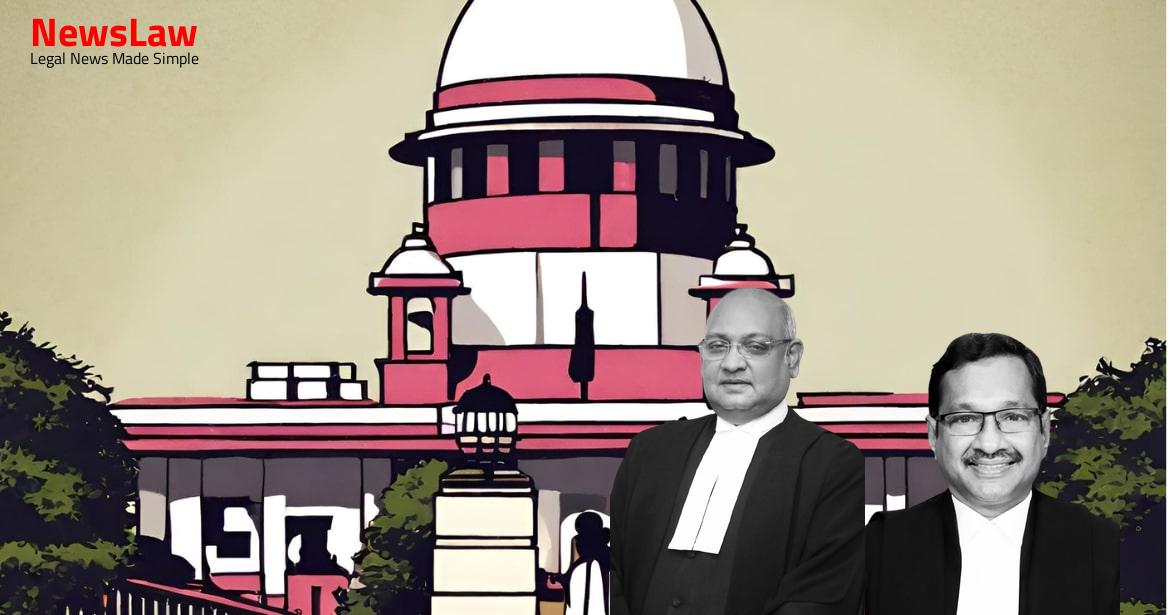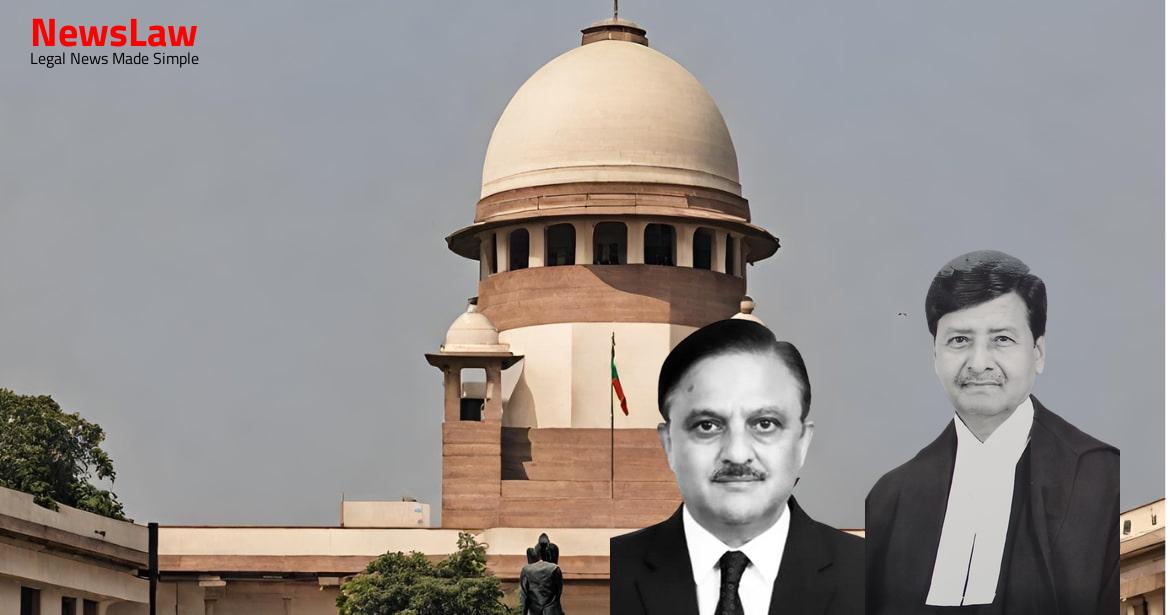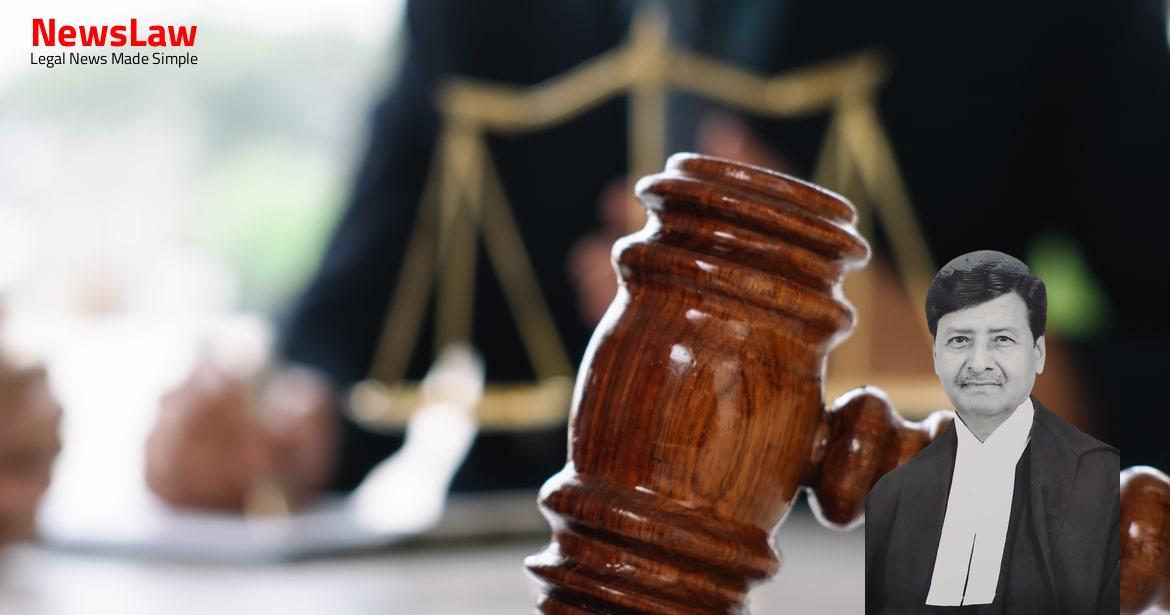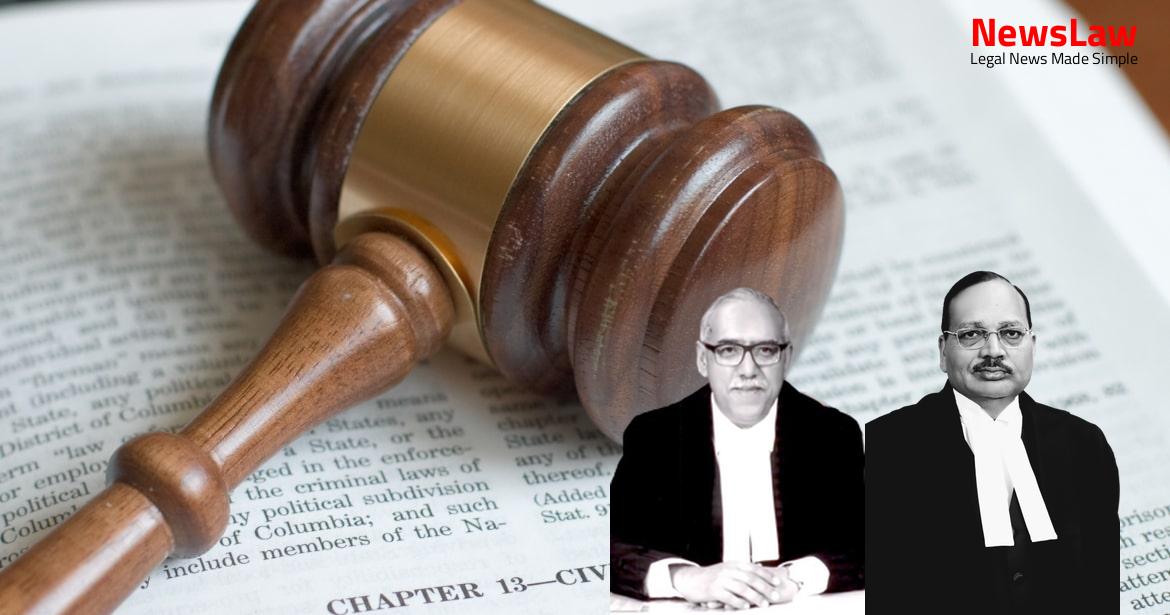In a recent legal case, the court delved into the implications of suppressing facts in employment matters. The focus was on the legal analysis provided by the court regarding the disclosure of material information by employees. The court highlighted the serious repercussions that can arise from concealing relevant details, especially in cases involving criminal backgrounds. This summary explores the court’s stance on the legal consequences of suppression of facts in employment scenarios.
Facts
- The Division Bench of the High Court affirmed the findings of the learned Single Judge regarding the guilt of the appellant.
- The respondent had been acquitted in a criminal case before the disciplinary proceedings were initiated.
- The writ petition filed by the respondent was initially allowed by the High Court for reconsideration of the appeal by the Appellate Authority.
- The writ petition was later dismissed as the respondent was found to have concealed his involvement in the criminal case.
- The Division Bench directed the imposition of a lesser punishment than removal from service, considering the nature of the offences and previous court directions.
- Consequential orders were issued by the Division Bench regarding the continuity of service of the respondent.
- The respondent’s appeal was dismissed by the Appellate Authority on 31.07.2009.
- The Appellate Authority issued a fresh order on 22.08.2012, again dismissing the appeal and upholding the decision of the Disciplinary Authority.
- The respondent was awarded the punishment of removal after participating in the inquiry.
- The respondent claimed that the criminal case against him was settled in the village, and he was unaware of its pending status which led to the column in the verification roll being left blank.
- The appellants argued that the respondent’s act of leaving the column blank constituted concealment or suppression of material facts.
- The Single Judge found that while the criminal case was pending, the respondent neither mentioned ‘Yes’ nor ‘No’ in the relevant column, which was considered prejudicial to the discipline of CRPF.
- The respondent contested this finding, stating that he did not suppress any information that would warrant disciplinary proceedings.
- The respondent then filed a writ petition which led to the current appeal, being W.P.(C) No. 24085 of 2012.
Also Read: Court’s Jurisdiction in Re-appraising Arbitrator’s Findings
Issue
- The Division Bench of the High Court interfered with the quantum of punishment awarded to the respondent.
- The respondent was appointed under the Central Reserve Police Force (CRPF) Group Centre in Bhubaneswar in 2003.
- A departmental inquiry was initiated against the respondent for his involvement in a case in Kendrapara Police Station for various offenses.
- The punishment of removal from service awarded to the respondent was set aside by the High Court.
- The High Court directed the imposition of any lesser punishment deemed just and proper on the respondent.
- The petitioner-appellant is deemed to be continuing in service notionally from the date of his removal.
Also Read: Contrary Directions in Issuance of Letter of Intent
Arguments
- The petitioner’s counsel argued that furnishing false information and suppressing relevant facts in the verification roll should be viewed disfavorably.
- The respondent admitted to suppressing the material fact about the pendency of a criminal case against him.
- The counsel contended that the punishment of removal from service was justified in this case and should not be interfered with.
- The respondent was honourably acquitted in a case of petty nature involving over 50 village parties.
- Reference to the Avtar Singh case is made for leniency due to the trivial nature of the matter and lack of ill-intent.
- The respondent was found guilty of suppressing material facts by leaving columns blank in the verification roll while a criminal case was pending.
- The argument for not providing false information is countered by the fact that the respondent knew about the case as he surrendered before the Trial Court and was granted bail.
- The findings of guilt for misconduct in suppressing information cannot be faulted.
Also Read: Application for Stay in Civil Suit Rejected: Court’s Legal Analysis
Analysis
- The Court is of the opinion that the punishment of removal from service imposed on the petitioner was too harsh and warranted interference under Article 226 of the Constitution of India.
- The employer is justified in not appointing or terminating the services of an individual if they have not been acquitted in a criminal case and the conviction might render them unsuitable for the job.
- Non-disclosure or submission of false information can be grounds for the employer to cancel candidature or terminate services, especially in cases involving moral turpitude.
- Different courses of action may be taken by the employer in cases of suppression of facts, depending on the nature and seriousness of the default.
- A non-disclosure of material information can itself be a ground for cancellation of employment or termination of services.
- The Division Bench was not justified in interfering with the quantum of punishment imposed by the employer.
- In cases where there is suppression or false information related to criminal cases with recorded convictions or acquittals before the application/verification form was filed, appropriate recourse can be taken.
- For trivial cases such as shouting slogans at a young age or petty offenses, where the conviction was recorded, the employer may choose to overlook the suppression or false information.
- The decision to condone such lapses lies with the employer, and the candidate may still be considered for consequential service benefits.
- Candidates must provide true information to the employer regarding any convictions, acquittals, arrests, or pending criminal cases both before and after entering service.
- False information provided by a candidate can lead to termination of services or cancellation of candidature.
- The 3-Judge Bench of this Court emphasized the importance of furnishing correct information in the verification form.
- Suppression of material facts or submitting false information can lead to termination of services or cancellation of candidature.
- Non-disclosure of material information and submitting false information are considered equally serious.
- Non-disclosure alone can be a ground for an employer to cancel candidature or terminate services.
- Information provided to the employer by a candidate regarding criminal cases, including arrest or pendency, is crucial.
Decision
- The writ petition filed by the respondent is dismissed
- No order as to costs is given
Case Title: UNION OF INDIA Vs. DILLIP KUMAR MALLICK (2022 INSC 1301)
Case Number: C.A. No.-002754-002754 / 2022



